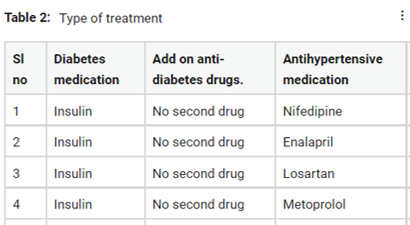Abstract
Mild cognitive impairment (MCI) is a progressive neurodegenerative disease on which diabetes mellitus and hypertension play an important role as major risk factors. This study aims to assess the quality of life of MCI patients with type 2 diabetes and hypertension. A cross sectional study was carried out in a tertiary care teaching hospital. Cognitive status of patients were assessed by Addenbrooke’s Cognitive Examination III (ACE-III) and Montreal Cognitive Assessment (MoCA). Mild Cognitive Impairment Questionnaire (MCQ) was used to score the quality of life. SPSS 21.0 was used to perform statistical analysis. Kruskal-Wallis test and Mann Whitney U test were used to analyze the relationship between quality of life and demographic parameters. Totally 1887 patients with type 2 DM and hypertension were screened to detect MCI patients. The prevalence of MCI in the population was found to 24.64%. Mean age of the population was 45.12 ± 10.54. Quality of life of patients was affected due to MCI with diabetes and hypertension in early ages. Patients employed in Govt or private sector (p=0.021) and disease duration less than 10 years (p=0.025) had significantly better quality of life. Two domains of MCQ, such as emotional concern and practical concern were assessed separately found that MCI patient’s practical concern scores did not differ significantly from emotional concern scores (p= 0.874). Quality of life was affected in MCI patients with diabetes and hypertension in early ages. Routine clinical examination should consider the quality of life as an important parameter during the patient visit and necessary modifications should be given to enhance the quality of life as well as patient satisfaction.
Full text article
References
Addington-Hall, J. 2001. Measuring quality of life: Who should measure quality of life? BMJ, 322(7299):1417–1420.
Bárrios, H., Narciso, S., et al. 2013. Quality of life in patients with mild cognitive impairment. Aging & Mental Health, 17(3):287–292.
Bendlin, B. B. 2019. Antidiabetic therapies and Alzheimer disease. Dialogues in Clinical Neuroscience, 21(1):83–91.
Buiting, H. M., Olthuis, G. 2020. Importance of Quality-of-Life Measurement Throughout the Disease Course. JAMA Network Open, 3(3):e200388– e200388.
Dean, K., Jenkinson, C., et al. 2014. The development and validation of a patient-reported quality of life measure for people with mild cognitive impairment. International Psychogeriatrics, 26(3):487– 497.
Gauthier, S., Reisberg, B., et al. 2006. Mild cognitive impairment.
Hodges, J. R., Larner, A. J., et al. 2017. Addenbrooke’s Cognitive Examinations: ACE. Cognitive Screening Instruments, pages 109–137.
Jekel, K., Damian, M., et al. 2015. Mild cognitive impairment and deficits in instrumental activities of daily living: a systematic review. Alzheimer’s Research & Therapy, 7(1).
Kalaria, R. N. 2000. The role of cerebral ischemia in Alzheimer’s disease. Neurobiology of Aging, 21(2):321–330.
Logsdon, R. G., Mccurry, S. M., et al. 2007. Evidence based interventions to improve quality of life for individuals with dementia. Evidence-based interventions to improve quality of life for individuals with dementia, 8(4):309–318.
Luchsinger, J. A., Reitz, C., et al. 2007. Relation of Diabetes to Mild Cognitive Impairment. Archives of Neurology, 64(4):570–570.
Muldoon, M. F., Barger, S. D., Flory, J. D., Manuck, S. B. 1998. What are quality of life measurements measuring? BMJ, 316(7130):542–545.
Nasreddine, Z. S., Phillips, N. A., et al. 2005. The Montreal Cognitive Assessment, MoCA: A Brief Screening Tool For Mild Cognitive Impairment. Journal of the American Geriatrics Society, 53(4):695–699.
Reitz, C., Tang, M.-X., et al. 2007. Hypertension and the Risk of Mild Cognitive Impairment. Archives of Neurology, 64(12):1734–1734.
Sluggett, J. K., Koponen, M., et al. 2020. Metformin and Risk of Alzheimer’s Disease Among Community-Dwelling People With Diabetes: A National Case-Control Study. The Journal of Clinical Endocrinology & Metabolism, 105(4):e963– e972.
Sullivan, K. M., Dean, A., et al. 2009. On Academics: OpenEpi: A Web-Based Epidemiologic and Statistical Calculator for Public Health. Public Health Reports, 124(3):471–474.
Vermeer, S. E., Prins, N. D., et al. 2003. Silent Brain Infarcts and the Risk of Dementia and Cognitive Decline. New England Journal of Medicine, 348(13):1215–1222.
Ward, A., Arrighi, H. M., et al. 2012. Mild cognitive impairment: Disparity of incidence and prevalence estimates. Alzheimer’s & Dementia, 8(1):14– 21.
Whoqol Group 1995. The World Health Organization quality of life assessment (WHOQOL): position paper from the World Health Organization. Social science & medicine, 41(10):1403–1409.
Wu, L., He, Y., et al. 2016. The association between the prevalence, treatment and control of hypertension and the risk of mild cognitive impairment in an elderly urban population in China. Hypertension Research, 39(5):367–375.
Authors

This work is licensed under a Creative Commons Attribution-NonCommercial-NoDerivatives 4.0 International License.

